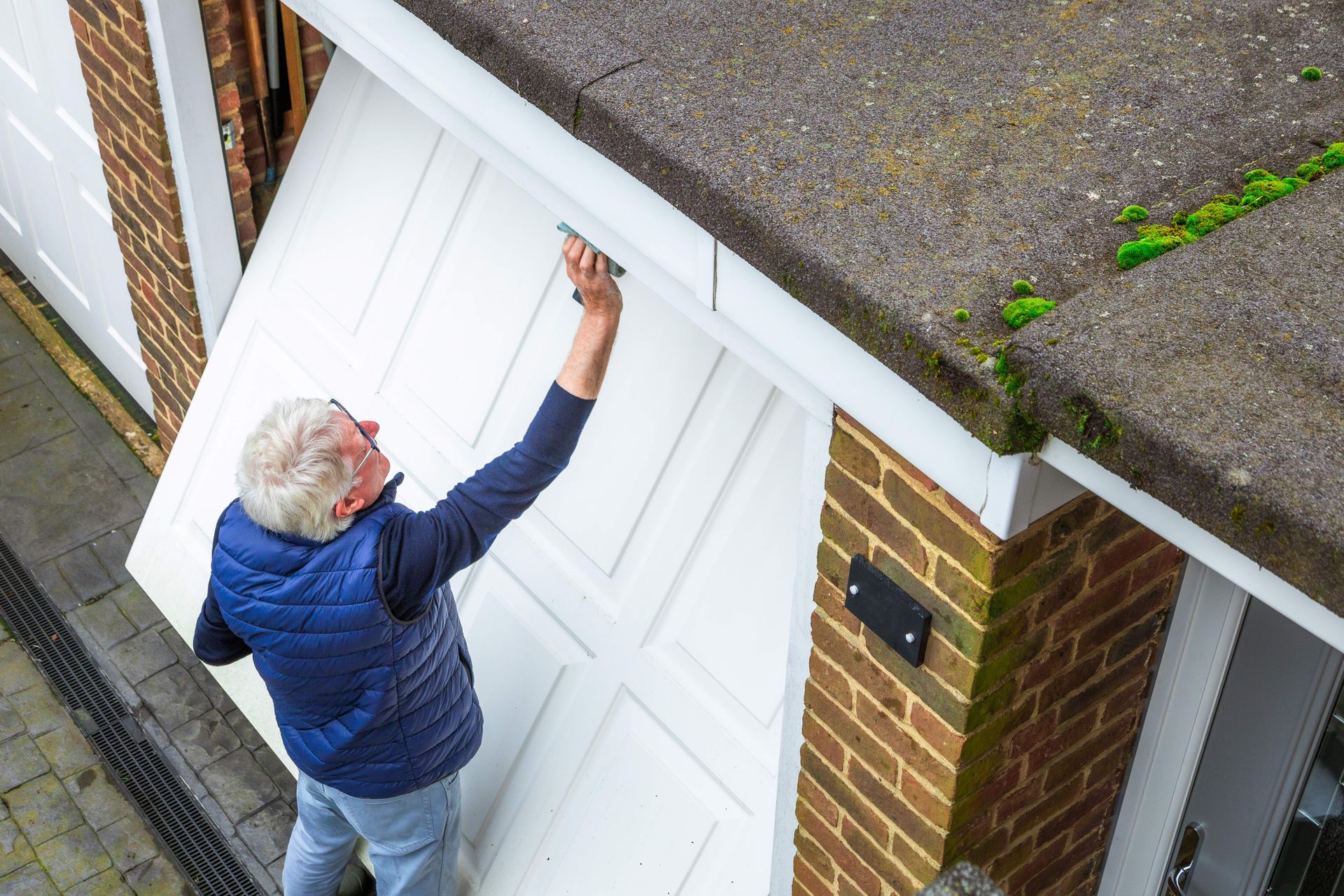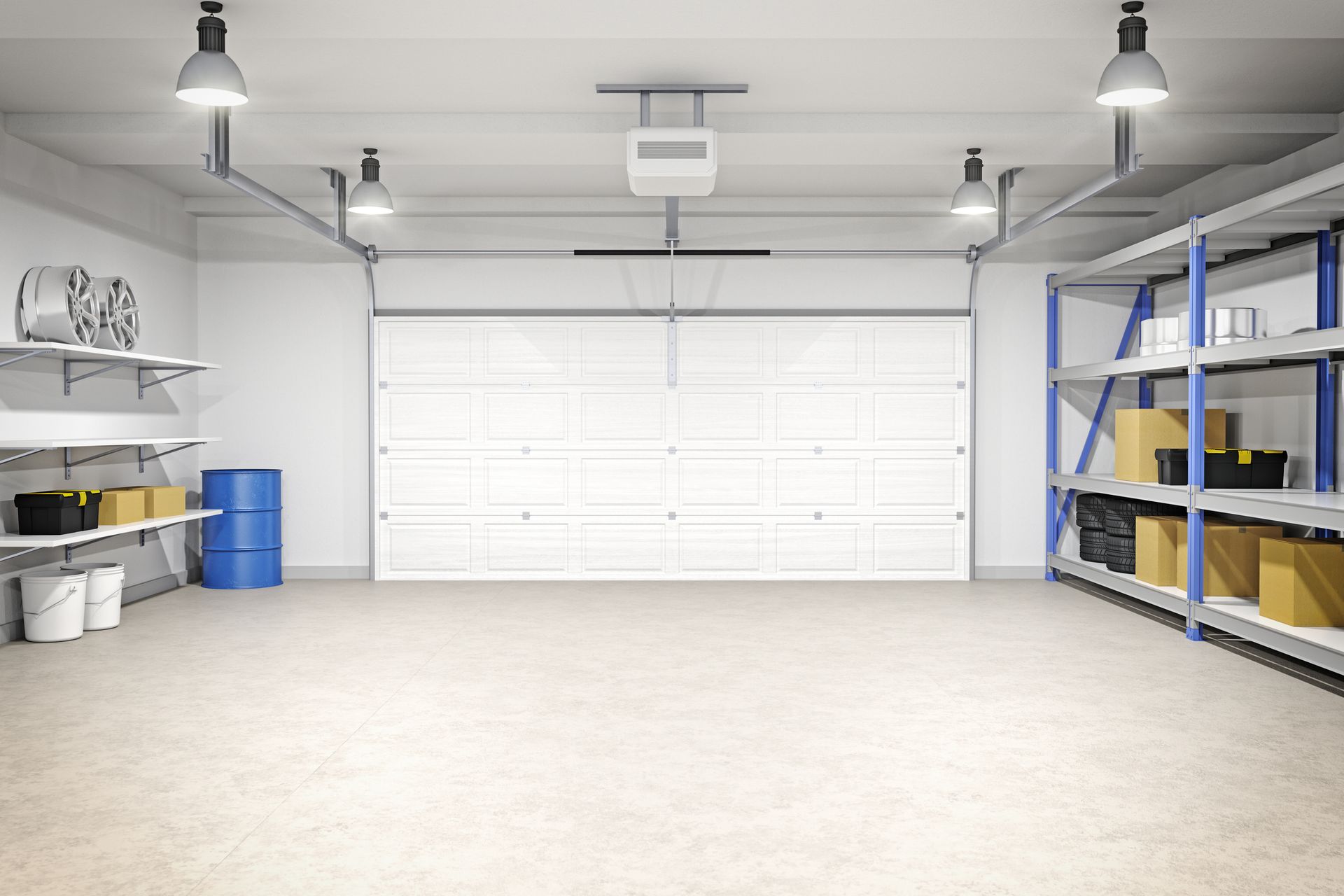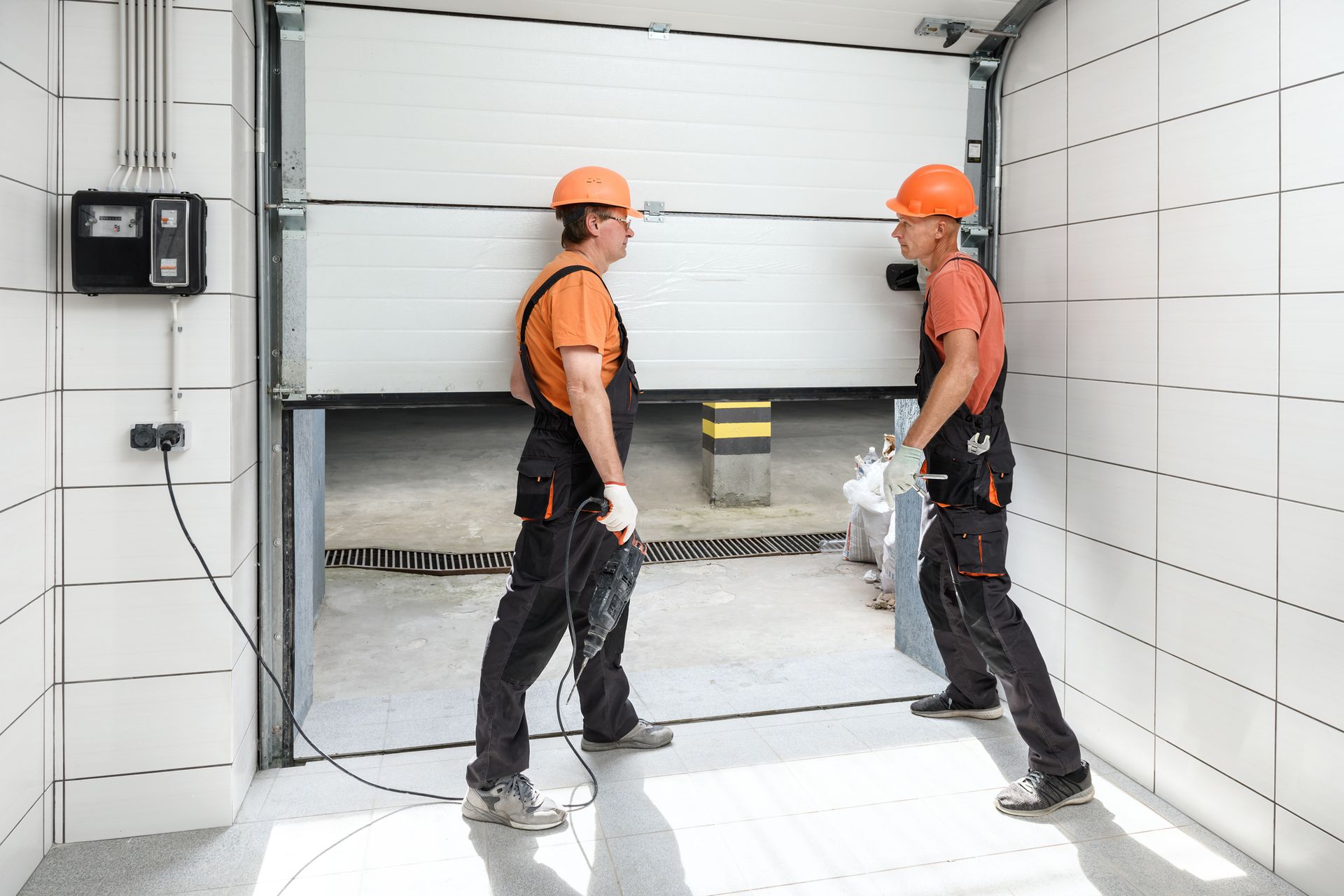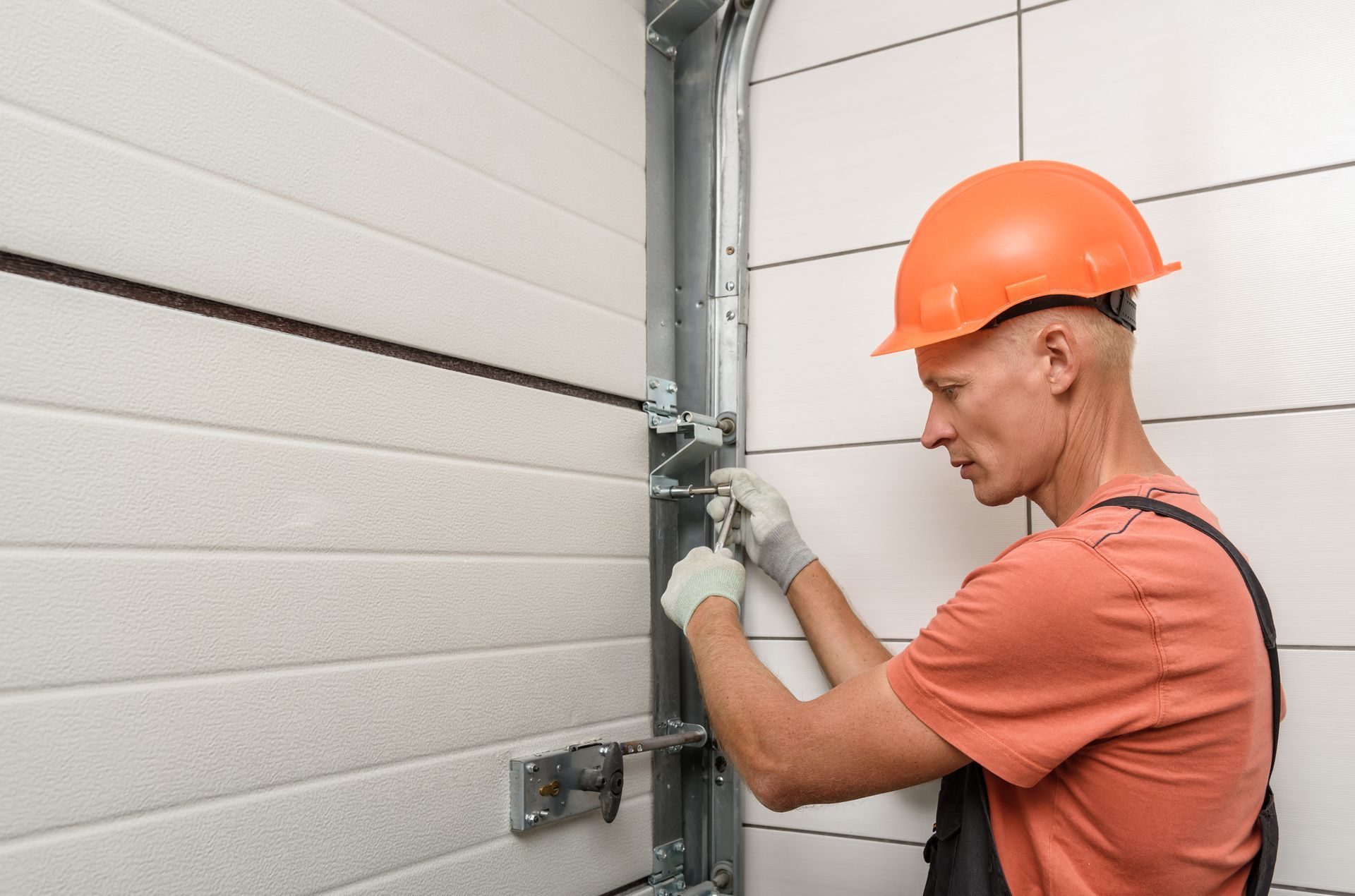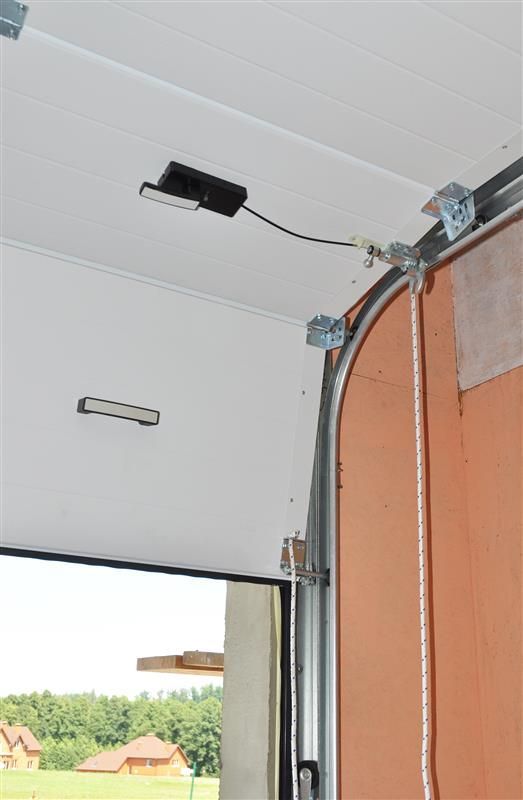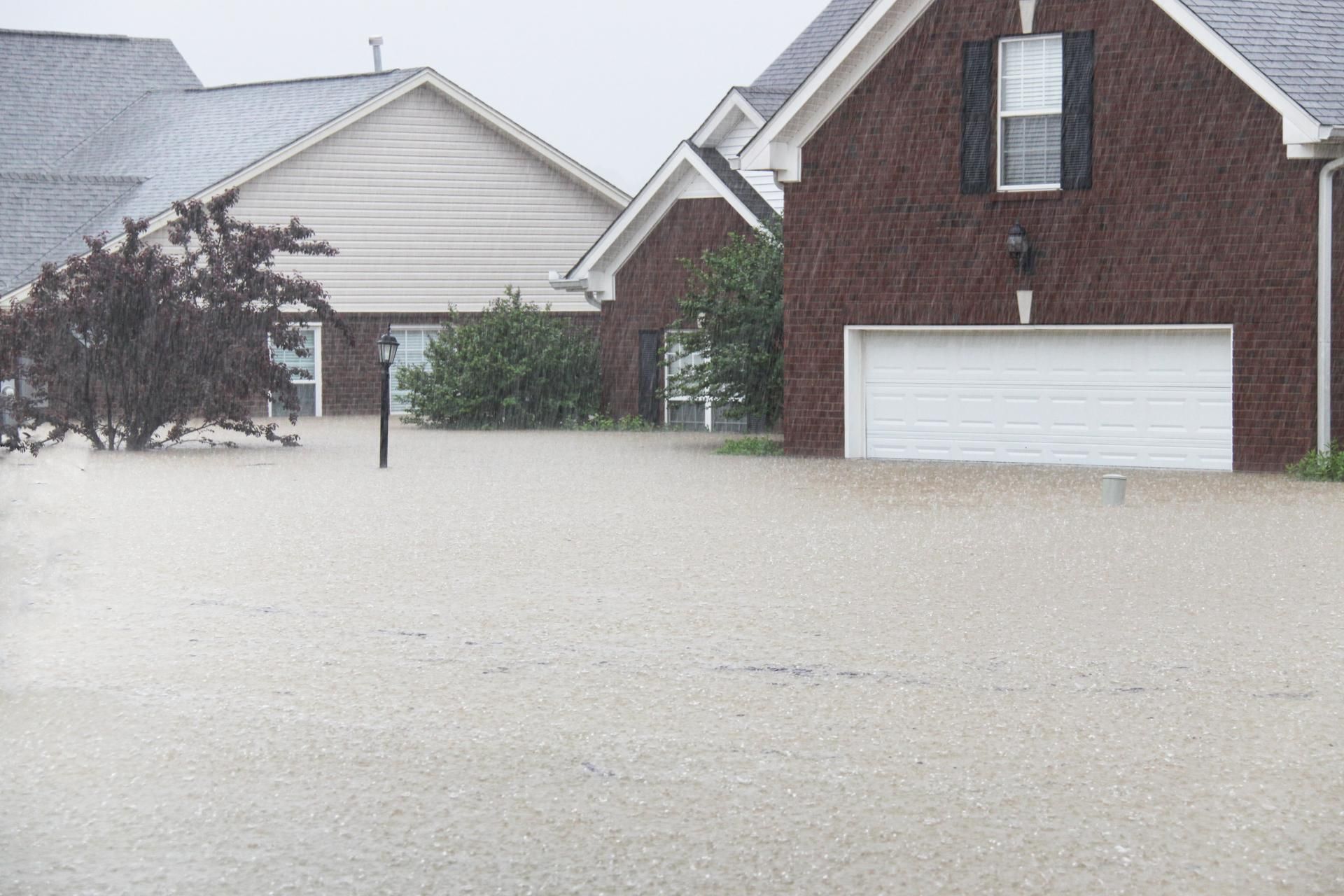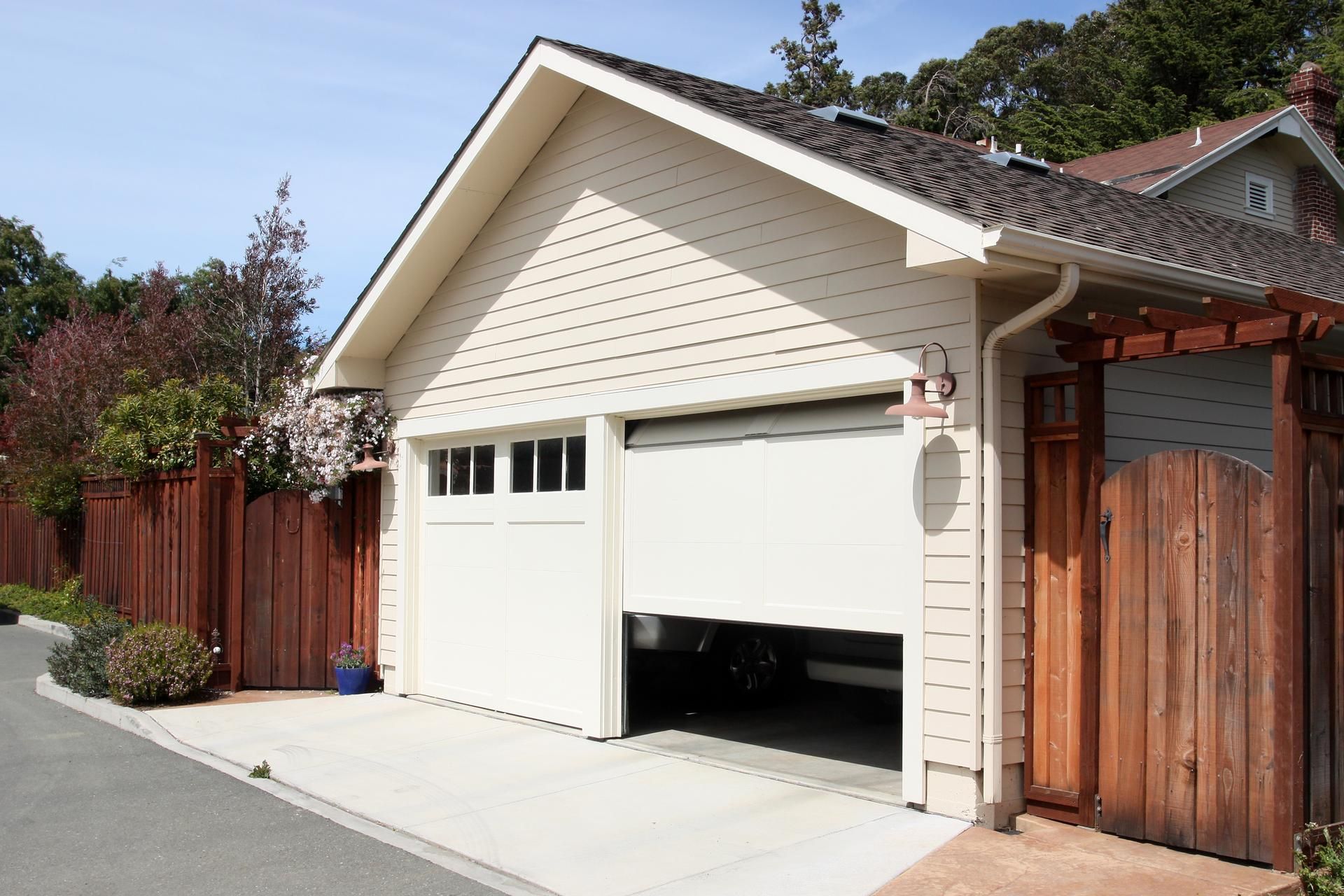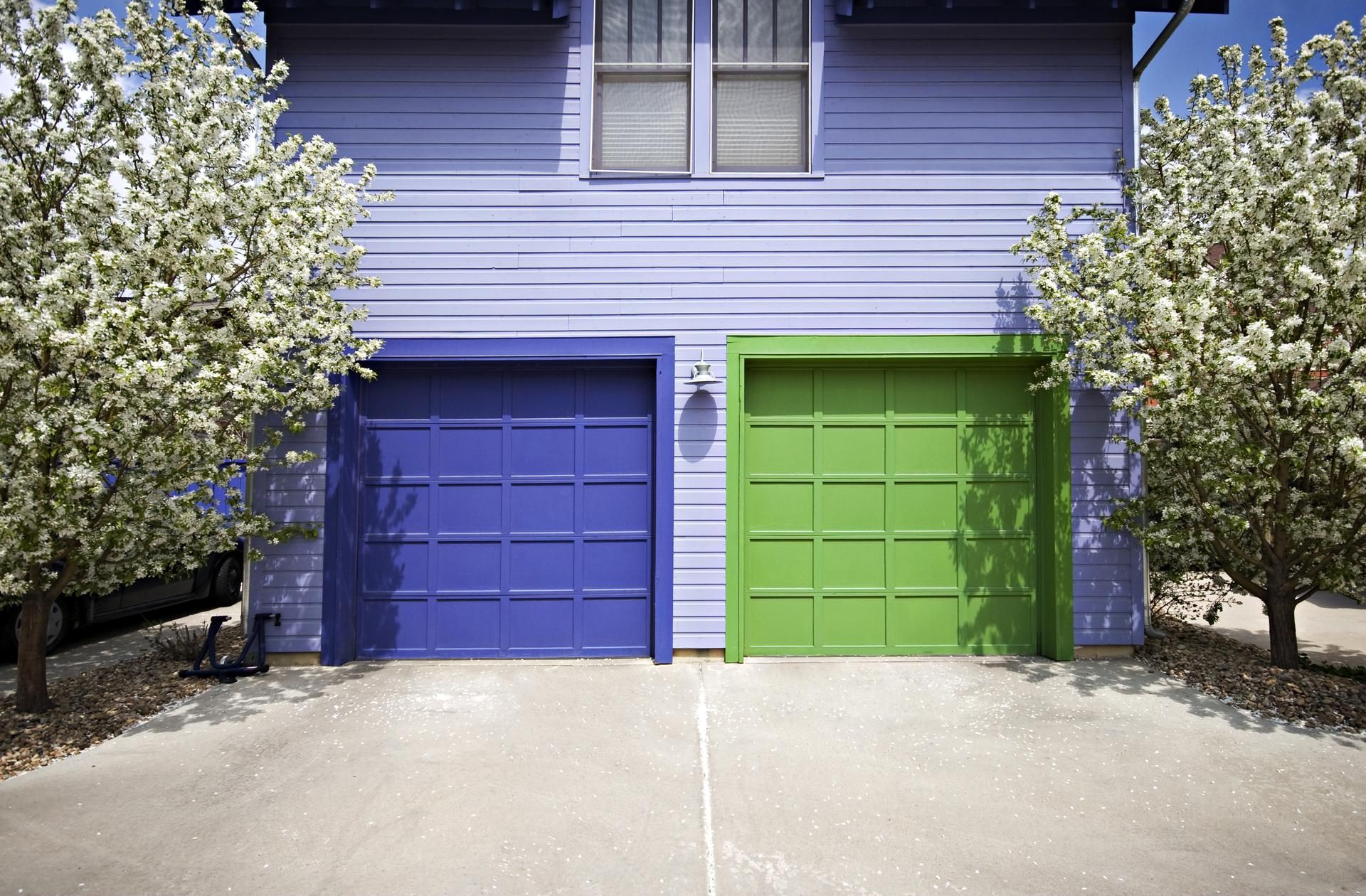Garage Door Jam? What You Should Know
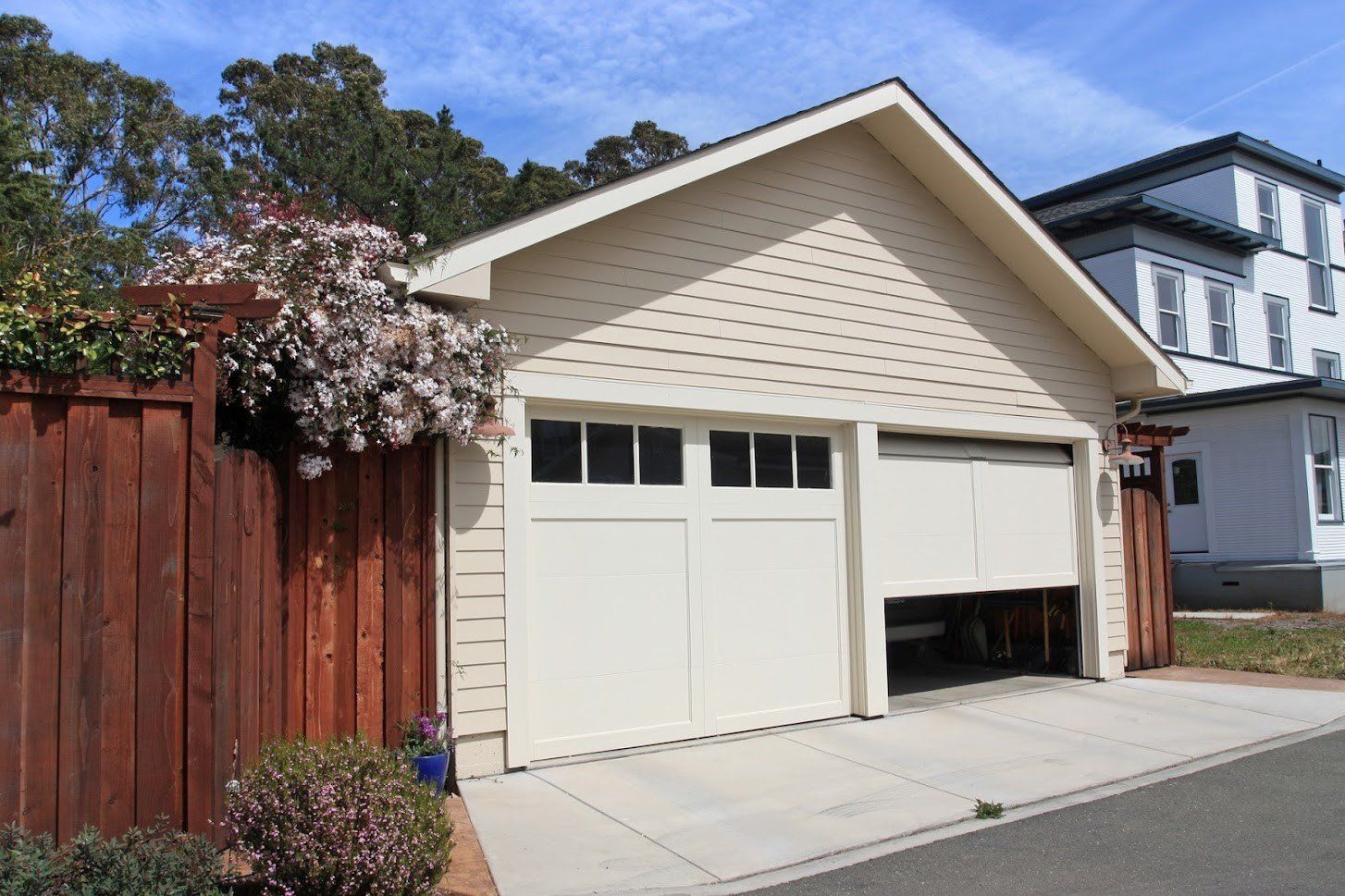
Why Do Garage Doors Stick?
Whether your door is stuck firmly in place or stops mid-rise and mid-close, it has a problem you should not ignore. Not only does this issue pose a serious security issue, but it is also a safety hazard. However, a garage door does not stick for any one reason. A few different culprits might be behind this issue.
These include:
- Hot weather (humidity can make a door swell and stick in place)
- Cold weather (ice can jam the door)
- Mechanical damage to the spring
- An obstruction on the track
- A jammed pulley
- A misalignment with the track
- A damaged track
- A damaged door panel
- Improper sensor function
- Poor lubrication
- Lack of power or an electrical malfunction (for an automatic opener, keypad, or remote malfunction)
- A bad opener circuit board
- A disconnected opener trolley
If the garage is stuck mid-close and retracts or backs up over and over again, the close-limit switch might be set incorrectly. This feature stops the door from accidentally crushing someone or something in its way. An incorrect setting or misalignment of the security sensors could stop the door in its tracks.
Along with these issues, you might have locked yourself out of the door, making it stick in the down position. Make sure you did not accidentally activate a security feature before you dig deeper into this garage door mystery.
What Should You Do If Your Garage Door Is Stuck?
Never attempt to move a stuck garage door or loosen it from its position. The door could snap down, landing on you, another person who is nearby or helping you, or your car. Instead, leave the door as-is. Provided you have no power source disruption and you did not inadvertently lock the door in place, you likely have some malfunction.
Keep all people, pets, vehicles, and belongings away from the door. Call a qualified garage door service provider before you attempt to diagnose the problem. Given the many different possible causes behind a stuck garage door, you will need a professional's help.
A technician can inspect the door, the track and mechanical equipment, and the automatic opener. The professional has the knowledge and experience necessary to accurately assess the issue, diagnose the cause, and recommend a repair or replacement.
How Will the Technician Repair the Door?
Just as all stuck garage doors have no single root cause, you will not find one type of repair. The repair the technician recommends is completely dependent on the problem they find. If the automatic opener has significant wear and tear or an electrical board malfunction, they may need to replace the entire unit. But if you had a bad wire or minor issue, they may suggest a repair.
Likewise, a technician could repair an obstructed track or replace a damaged spring without having to install an entirely new door unit. But if the problem comes from serious damage, multiple issues are at fault, or the door is too old or worn to repair properly, you may need a replacement.
What Type of Opener Replacement Should You Choose?
Did the garage door technician assess the issue and recommend a new automatic opener? Now what?
Learn more about your options. The technician can possibly swap out the old, broken automatic opener for the same (newer) model. If not, they will review your choices.
Before you select an opener, the technician will need to size it to fit your door. This means you need to decide whether you will replace the opener alone or the opener and the door first. A new door may weigh more than or less than the older one, making it necessary to choose a different horsepower option for the opener.
You will also need to decide if you want to keep the same type of opener drive. This is either a chain or belt drive. Chain drives are noisier than belt drives. But these drives are often easier to repair.
What Type of Garage Door Should You Choose?
Do you also need to replace the door itself? Again, decide on a new door before you select an opener or opener mechanism. You have several options and combinations of options to choose from.
You can select the material (such as steel), the style (such as carriage house, one-piece panel, or raised panel designs), the color, and the insulation content. The specific door you select depends on your personal preferences, your home's exterior aesthetics, your durability needs, your home’s size, and the garage door’s function.
Do you need a garage door repair or replacement? Contact Edgemont Garage Doors for more information.



